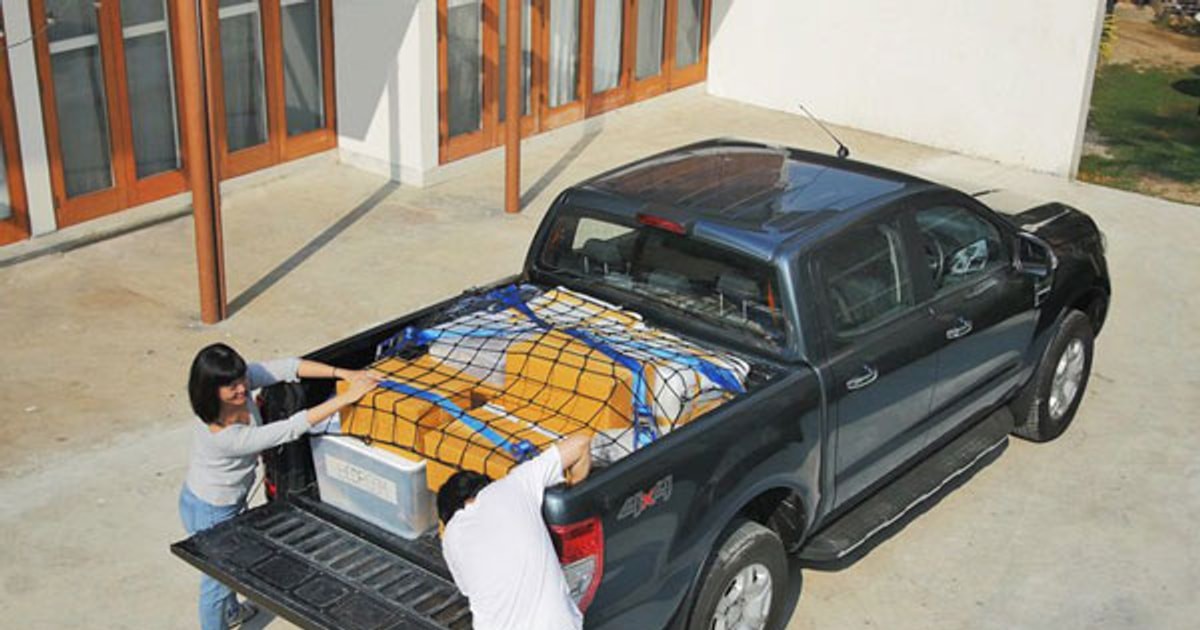The proposal to increase the special consumption tax on double-cabin pickup trucks is causing considerable concern amidst the fluctuating Vietnamese automobile market. According to the draft amendment of the Special Consumption Tax Law, the tax rate applied to pickup trucks could rise to 60% compared to passenger cars with the same engine displacement. This means the tax rate on pickup trucks would double from the current 15-25% to 24-54%, sparking diverse opinions from experts and National Assembly delegates.
During the discussion session on the revised Special Consumption Tax Law, many delegates expressed concerns about this proposal, especially as pickup trucks hold a significant market share in provinces and cities outside urban areas and in the northern mountainous regions.
Pickup Truck Market Reliance on Provinces and Mountainous Regions
Delegate Duong Minh Anh from the Hanoi delegation pointed out that pickup trucks currently account for only about 5% of the total automobile market in the country and primarily serve the practical needs of people in rural areas, difficult terrains, or small businesses transporting goods such as fruits.
The distinctive design of pickup trucks, with a cargo bed at the rear and a passenger cabin in the front, although the second row of seats is often less comfortable than in passenger cars, makes them versatile. This versatility contributes to strong pickup truck sales in provinces and mountainous northern regions, accounting for up to 70% of the market share, while Hanoi and Ho Chi Minh City only account for 30%.
 Pickup truck on a road, representing the vehicle type potentially affected by tax increases.
Pickup truck on a road, representing the vehicle type potentially affected by tax increases.
Delegate Anh further emphasized the role of pickup trucks in real-life situations: “During the recent Typhoon No. 3, I witnessed many people using pickup trucks to transport relief goods and assist in disaster recovery, helping to quickly stabilize the lives of the people.” Pickup trucks are not only convenient for cargo transport but also capable of accessing areas that are difficult for trucks and passenger cars to reach.
Compared to other ASEAN countries such as Laos, Thailand, and Indonesia, pickup trucks are very common and widely used for various purposes; even civil servants use them. The special consumption tax rate for pickup trucks in these countries is very low, while Vietnam’s rate is among the highest in the region. With a lifespan of 25 years, most pickup truck buyers are not looking for luxury but rather to serve their actual transportation and mobility needs.
Increasing taxes on pickup trucks also affects domestic manufacturing and assembly enterprises, which create thousands of direct and indirect jobs. This contradicts the Party and State’s policy orientation on job creation and increasing the production and assembly of priority products in the Strategy for the Development of the Automobile Industry.
Delegate Anh expressed concern: “Increasing the special consumption tax will raise vehicle prices, reduce sales volume, and factories may face production cuts and job losses for workers. These are impacts that must be considered.” The delegate suggested considering a stable policy implementation, researching a roadmap and appropriate tax increase levels, avoiding sudden increases that affect production, business, and employment. A tax increase roadmap over 3-5 years, with an annual increase of 2-3%, could be a more reasonable solution.
Careful Consideration Needed for Pickup Truck Tax Increase
Echoing this sentiment, Delegate Nguyen Thi Viet Nga from the Hai Duong delegation also believes that increasing the tax on double-cabin pickup trucks to 60% compared to passenger cars is too high. Ms. Nga analyzed that pickup trucks are not primarily used in urban areas but in suburban and rural areas, with their main function being cargo transport, serving small and medium-sized production and business.
Many countries in the region use pickup trucks to transport agricultural tools and goods for daily life. In Vietnam, this vehicle type also plays an important role in freight transport in rural and mountainous regions.
Delegate Nga further emphasized that regulating urban traffic is the authority of the transportation sector, and taxes should not be used to restrict the use of pickup trucks in major cities, as this is unfair to the 70% of consumers in other provinces and cities.
Tax increases also need to ensure fair competition between domestic automobile assembly enterprises and imported vehicles, encouraging domestic production instead of imports, in line with the development strategy of the Vietnamese automobile industry.
Based on the above realities, Delegate Nga believes that a high tax increase on pickup trucks will affect domestic automobile assembly. Therefore, careful consideration is needed when increasing taxes to balance the interests of the state, businesses, and the people. “If an increase is needed to increase state budget revenue, there should be a suitable roadmap, avoiding sudden increases. This roadmap could be studied over a period of 3-5 years, with gradual increases,” Delegate Nga suggested.
 Phan Duc Hieu, a delegate from Thai Binh province, speaking about pickup truck taxes.
Phan Duc Hieu, a delegate from Thai Binh province, speaking about pickup truck taxes.
Delegate Phan Duc Hieu from the Thai Binh delegation, an expert on vehicles and the automobile market, proposed maintaining the current special consumption tax on pickup trucks. Mr. Hieu analyzed that very few people buy pickup trucks just for “playing around” but mainly to serve production and business activities, especially in rural areas.
“Why should a vehicle that serves production and business needs be subject to special consumption tax and consumption restrictions? In small and medium-sized enterprises, many directors also want to drive cars, but for the sake of livelihood, they have to drive pickup trucks, both for passengers and cargo. This is a reality,” Mr. Hieu shared.
Delegate Hieu also pointed out that pickup trucks face more disadvantages compared to regular cars and have a limited lifespan. Tax increases will directly impact buyers and may even lead to a situation where people buy other vehicles and “modify” them into cargo trucks. Moreover, the tax increase could significantly affect a business that holds a large market share in the Vietnamese pickup truck market, creating unfair competition.
Regarding the method of taxing pickup trucks at 60% compared to regular cars, Delegate Hieu believes it is unreasonable because pickup trucks are cargo vehicles with large engine displacements and should not be compared to regular passenger cars.
Delegate Hieu proposed not increasing the special consumption tax on pickup trucks, as it would have a significant impact on production and business activities. He also expressed concern about the investment environment if policies change abruptly, affecting investors’ confidence in Vietnam.
Conclusion
The proposal to increase pickup truck taxes is facing considerable opposition from National Assembly delegates, businesses, and consumers. Concerns revolve around the excessively high tax increase, affecting the already established pickup truck market, negatively impacting domestic production, employment, and especially the practical need for pickup trucks among people in provinces, rural areas, and mountainous regions. Considering a suitable tax increase roadmap or maintaining the current tax rate are solutions supported by many parties to ensure balanced interests and stabilize the Vietnamese automobile market.

